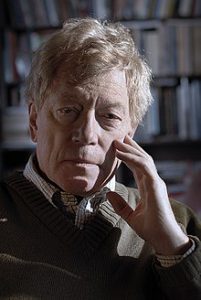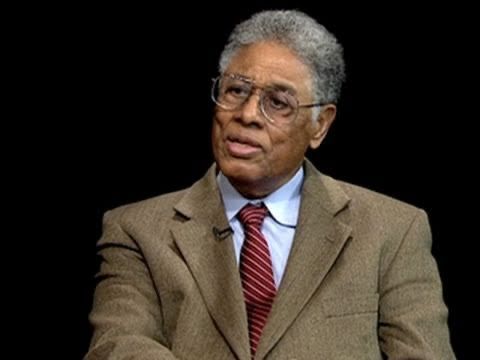Education
The Stifling Uniformity of Literary Theory
Many universities and colleges currently advertise literary theory courses which purport to introduce students to a range of different approaches to literary texts.

In 1976, the Nobel-prize winning economist, F.A. Hayek, published The Mirage of Social Justice, the second volume of his magnum opus Law, Legislation and Liberty.1 Despite being widely regarded as the definitive critique of social justice, today one would be lucky to find advocates of social justice in the academy who are familiar with the name ‘Hayek’, let alone those who have read him. Among classical liberals, libertarians, and conservatives alike, Hayek is one of the most important thinkers of the twentieth century whose The Road to Serfdom represents one of the most powerful arguments against socialism ever written.2 But those in the academy who have perpetuated socialist ideas since the 1980s have practically ignored it. In this article, I will argue that this unwillingness to engage with the ‘other side’ is not only endemic in the radical intellectual schools that have overtaken literary studies, but also that it is symptomatic of their entire way of thinking which, being hermetically sealed and basically circular in its argumentation, has no language to deal with critics beyond reactive moral condemnation.
Many universities and colleges currently advertise literary theory courses which purport to introduce students to a range of different approaches to literary texts. On paper, it looks like as many as ten or fifteen different approaches. The labels proliferate: new historicism, cultural materialism, materialist feminism, ecofeminism, postcolonialism, deconstruction, structuralism, poststructuralism, race theory, gender theory, queer theory, postmodernism … the list might go on. This extensive list of labels seems to signal genuine range and diversity; however, in terms of their ideas, these approaches are somewhat narrower in scope and focus than one might expect. Virtually every approach listed here lays claim to be ‘radical’, which is to say politically of the left or even hard left – with roots in Marxist theory – hostile to capitalism, the Enlightenment, classical liberalism, liberal humanism, and even to the West itself. Virtually all are also committed to ‘social justice’. It must be noted that, since about 1980, these labels accurately register the genesis of literary studies as a discipline, but what they do not register is that, as they were rising, dissenting voices were systemically hounded out of the academy.

For example, in 1985, Sir Roger Scruton – now famous as a philosopher and public intellectual – wrote a book called Thinkers of the New Left in which he was strongly critical of continental theorists such as Michel Foucault, Jacques Derrida, Louis Althusser, Jacques Lacan, and others.3 In stark contrast to the sometimes-wilful obscurantism of those he critiqued, Scruton wrote in plain prose and expressed ideas with clarity. Perhaps precisely because it laid the ideas bare, the book was greeted with howls of derision, and viciously attacked by scholars who had become disciples of Foucault et al. The publisher, Longman, was threatened with boycotts and risked being sent to the academic equivalent of the gulag if they did not stop selling the book, going as far as withdrawing copies from bookshops. As far as I can see, one thing that the episode did not produce is an intelligent response to any of the criticisms Scruton raised or, indeed, a single moment of critical self-reflection from any of those who had reacted so angrily. In effect, he was shut down and chased from academia.
In another infamous case, in 1988, Richard Levin, who was a Professor of English at the State University of New York, published an article in the PMLA – one of the premier journals in literary studies – outlining some of his problems with recent feminist studies of Shakespeare. The gist of Levin’s critique was that feminist readings of Shakespeare all seemed to reach similar conclusions. In his own words, ‘the themes employed in [feminist] interpretations are basically the same. Although the terminology may vary, these criticisms all find that [Shakespeare’s] plays are about the role of gender in the individual and society’.4 Now, one might expect a firm rebuttal to this charge from the scholars he was critiquing, and rightly so, but this is not what Levin received. Instead, the following year, a letter was published in the PMLA signed by twenty-four literary critics lambasting the journal for having the temerity to publish such an essay.5 It was not so much an academic response, but the public denunciation of a heretic – made more chilling because so many of the signatories worked on the Reformation, an era in which such burnings at the stake were de rigueur. Professor Levin, they argued, should not even be teaching literature. I remember when I first read of this episode while conducting research for my doctorate;6 I was not only appalled at Levin’s treatment, but also confounded by the utter refusal of these twenty-four scholars to engage in substantive argument. I remember it as a moment of profound disillusionment with the profession I was about to pursue, and it marked a turning point in how I would view the work of some of those who had signed it. Years later, during a podcast interview, I asked one prominent Shakespearean, who is strongly associated with the radical new approaches of the 1980s (but not a signatory of the letter), if he remembered Levin.7 The answer I got back was, ‘no one paid any attention to him; Levin was nowhere’. Again, I was struck by reasoning that seemed based entirely on what Aristotle would have called ‘ethos’, that is, the judgement of the person’s character as opposed to their arguments.8
If one understands the underlying theories, then it is not difficult to see why this happens. Despite significant differences, all the approaches I listed above assume that:
- There is no universal human nature.
- Human beings are primarily a product of their time and place.
- Therefore, power, culture, ideologies, and the social institutions that promulgate them have an extraordinary capacity to shape and condition individuals.
- In Western societies, since these institutions have been dominated by people who were predominantly rich, straight, white, and male it has tended towards pushing the particular interests of rich straight white men to the detriment of all other groups.
- Furthermore, these rich straight white men have done this by acting as if their sectional interests were universal and natural – a flagrant lie.
- Importantly, however, few if any of these rich white straight men were consciously aware of doing this, because they were themselves caught in the matrices of power, culture, ideologies and so on.
- Where subordinated groups have gone along with these power structures, they have been exploited and the victims of ‘false consciousness’.
- Now is the time to redress this balance by exposing the ways in which old texts have promoted the sectional interests of the rich straight white men and by promoting the voices of the historically marginalised groups.
Once this basic structure is understood, one can quickly see that the extensive list which seems like it represents a diverse range of approaches, in fact only promotes different flavours of a single approach. All that changes from one to the next are the specific groups of oppressors and oppressed as well as the structuring principle to which all individuals are invisibly in thrall. One might begin to represent it as follows:

We might continue the table to list other approaches, but the point is made. It is also obvious that these various critical schools might easily be combined, because they represent variations on the same basic idea. What is interesting to me from a philosophical point of view is that all of them are hermetically sealed, which is to say that if you accept the eight premises I outlined above, there is no way to attack them. We are all ‘always already’ in ideology, in the patriarchy, under power, which is implicitly white supremacist and heteronormative. And there’s no way out of this except to recognise it and to do our best to mitigate it. This is not a scientific hypothesis that can be falsified or a philosophical argument that can be countered with other philosophical arguments, it is more of a theological proposition. In fact, it functions in a near identical way to John Calvin’s notion of ‘total depravity’ and original sin:
To man we assign only this: that he pollutes and contaminates by his impurity those very things which were good. For nothing proceeds from a man, however perfect he be, that is not defiled by some spot.9
We are each ‘contaminated’ and ‘defiled’ by capitalism, patriarchy, power, white supremacy, and heteronormativity. Once this is understood, it is obvious why Scruton and Levin – as well as countless others – received the treatment they did. Either you are with the oppressed, and therefore on the side of the angels, or you are implicitly supporting the side of the oppressors, and a damnable and unrepentant sinner. It is a straightforward binary moral choice and its missionaries will take no prisoners.
As an educator, and as someone who cares passionately about my discipline, and especially Shakespeare – who, after all, might be the all-time poster boy for ‘viewpoint diversity’ – my main concern is about balance and the promotion of genuine critical thinking. As a schoolboy, Shakespeare would have trained in classical imitatio, the practice in which the student would try to embody the mindset of a given thinker and argue from their point of view. As his plays show, he was a natural master at thinking from another person’s perspective. One wonders whether the students that the academy is producing today could if asked to, provide the arguments of their ideological or political counterparts, without resort to crude caricature or ad hominem. My concern is not so much that some or even all of these 1980s postmodern approaches are taught at undergraduate level – they have undeniably each had their own impact on the discipline – it is rather that students seldom, if ever, encounter any of the available counter arguments. And there are many powerful ones, underpinned with empirical data: from evolutionary theory, from economics, from philosophy, from history, and so on. Such studies seldom make it onto recommended reading lists, let alone onto syllabus lists. This is one reason why in my recent book, Shakespeare and New Historicist Theory (2017), I ensured that the angry voices of an older generation of historians of the early modern period, epitomised by G.R. Elton, were not only registered but given a full and fair hearing. Elton’s problems with the way those who are influenced by Foucault’s synchronic approach to history have still, to my knowledge, not been properly addressed.

It is one thing to do this in research, but quite another to do it on undergraduate courses. What might a module that pits Michel Foucault against someone like E.O. Wilson look like? The bourgeoning of evolutionary and cognitive approaches to literary texts in recent years, epitomised by the work of Joseph Carroll, Brian Boyd and others – there is now a dedicated journal for such interdisciplinary work called Evolutionary Studies in Imaginative Culture10 – might soon justify such a pairing. Incidentally, Wilson wrote in the 2004 edition of his landmark On Human Nature of his struggles within the academy when his Pulitzer-prize winning book about humans and evolution came out in 1978:
[T]he fashionable mood in academia was revolutionary left. Elite universities invented political correctness, enforced by peer pressures and the threat of student protest. Marxism and socialism in this ambience were all right. Communist revolutions were all right. The regimes of China and the Soviet Union were, at least in ideology, all right. Centrism was scorned outside the dean’s office. Political conservatives, stewing inwardly, for the most part dared not speak up. Radical professors, the heroes on campus, repeated this litany: The Establishment failed us, the Establishment blocks progress, the Establishment is the enemy. Power to the people it was, but with an American twist. Because ordinary working people remained dismayingly conservative throughout this sandbox revolution, the new proletariat in the class struggle had to be the students.11
Does any of this sound familiar?

What might a course look like if a race theorist such as Derrick Bell was studied alongside someone like Thomas Sowell? For about thirty years both Bell and Sowell were consistently among the top five most cited black scholars in American Academia according to The Journal of Blacks in Higher Education.12 However, as with so many prominent intellectuals, while Sowell is revered among classical liberals, libertarians and conservatives, he is practically unheard of on the left, despite his pioneering work on the economics of race and ethnicity.13 To borrow Jonathan Haidt’s phrase, liberal intellectuals are in danger of being ‘blind’ not only to the other side’s moral taste buds, but also to their most important thinkers.14
However, it is not simply a matter of which thinkers are taught, but also how they are taught. Whenever I teach literary theory, I always ensure that I stress to students that what they are studying is not Gospel, but rather ‘highly opinionated men and women making very contentious statements about the world’. Critical thinking cannot flourish in conditions in which students cannot question the material they are being taught. We should not expect or even encourage students to inherit our own ideas, least not of all political beliefs. Universities are places to learn how to think not what to think. It seems somewhat ironic that a set of literary approaches so committed to deconstructing and uncovering the supposed processes of social indoctrination should also be so oblivious to their own role in indoctrinating a generation of students.
References:
1 F.A. Hayek, Law, Legislation and Liberty (1982; New York and London: Routledge, 2013).
2 F.A. Hayek, The Road to Serfdom: Texts and Documents – the Definitive Edition (1944; Chicago: University of Chicago Press, 2008).
3 It has since been republished as Roger Scruton, Fools, Frauds and Firebrands: Thinkers of the New Left (New York and London: Bloomsbury, 2015).
4 Richard Levin, ‘Feminist Thematics and Shakespearian Tragedy’, PMLA, 103 (March, 1988), p. 125.
5 See PMLA, 104 (January, 1989), 77-79
6 It was published as my first book Shakespeare’s History Plays: Rethinking Historicism (Edinburgh: Edinburgh University Press, 2012).
7 See my podcast, Shakespeare and Contemporary Theory here: https://blogs.surrey.ac.uk/shakespeare/
8 Aristotle, The Nicomachean Ethics, ed. Lesley Brown (Oxford: Oxford University Press, 2009), p. 23.
9 John Calvin, Institutes of the Christian Religion, 2 Vols, ed. John T. McNeil, trans. Ford Lewis Battles (Philadelphia, PA: The Westminster Press, 1960), 3.15.3, pp. 790-1.
10 See http://journals.academicstudiespress.com/index.php/ESIC/index
11 E.O. Wilson, On Human Nature, rev. ed (1978; Cambridge, MA: Harvard University Press, 2004), p. xv.
12 See https://www.jbhe.com/
13 See especially Thomas Sowell, Race and Economics (Philadelphia, PA: David McKay Company, 1975), and Ethnic America: A History (New York: Basic Books, 1981).
14 Jonathan Haidt, The Righteous Mind: Why Good People Are Divided by Religion and Politics (New York: Random House, 2012).






